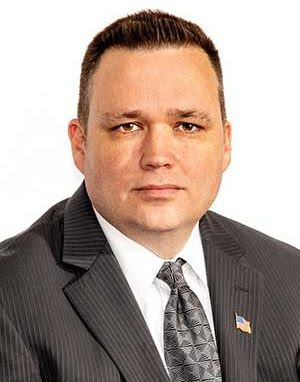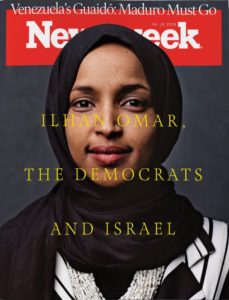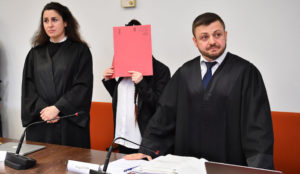THE ISLAMIZATION OF EUROPE &
THE EUROPEAN CALIPHATE
BY RAMI DABBAS
republished below in full unedited for informational, educational and research purposes:
In the 20th century, the world’s population increased four times and exceeded 6.5 billion people. the demographic change in the recent decades has seen a rapid growth in the number of Muslims. Since 1990, the number of Muslims in the world has increased from 880 million to 1 billion people. Islam became the fastest growing world religion in terms of the number of adherents, and according to current forecasts, by 2030 there will be at least two billion Muslims on earth out of a total population of 8 billion.
Currently, Islam is already the second largest religion in terms of followers (after Christianity). More than two thirds of Muslims live in Asia, where they constitute over 20% of the population, and almost 30% in Africa (half of the continent’s population). Muslim communities exist in more than 120 countries of the world, in 35 of them they constitute over 80% of the population (most of them are in the countries of North Africa and West Asia). The largest absolute Muslim communities reside in Indonesia, India, Pakistan and Bangladesh. Sociologists predict that by 2025 in the US, the Islamic community will become the second largest after Christians, overtaking the Jewish one.
Especially rapidly increasing is the number of Muslims in Europe. The largest Muslim community is in France: from 5 to 7 million (up to 10% of the total population), Islam became the second largest religion in the country after Catholicism. Numerous communities of followers of Islam were formed in Germany (4 million), Great Britain (1.7 million), Italy and Holland (1 million each). Significant Muslim communities are scattered throughout all Western European countries.
It should be noted that no one knows the real number of Muslims in Western Europe, since along with the legal immigrants and their descendants, there are many millions of illegal immigrants who are absent in official statistics. According to various estimates, between 15 and 24 million Muslims now live in Western Europe. Demographers predict that by 2025 the number of Muslims in Europe will double due to the high birth rate and mass immigration from North Africa and the Middle East.
Islam came to Western Europe just a few decades ago. Until the end of the 1940s, there were very few Muslims. (most in France – 120 thousand in the mid-1920s). The first mass migration was associated with the war in Algeria (1954-1962). After the forced consent of France to the declaration of independence of this North African states, hundreds of thousands of local Muslims took advantage of the opportunity to move to their former metropolis.
As a result of mass migrations from developing countries, the level of ethnic and denominational fragmentation of the population of those European states that were quite homogeneous a few decades ago is constantly increasing. It is fundamentally important that, unlike in past years, a significant part of Muslim migrants and their descendants now do not show a desire to integrate into a new environment for themselves.
The former European model of building a single civic nation within the framework of a national state (like the “melting pot” in the USA) in modern conditions ceases to work. Consequences of this are the concepts of building multicultural, multi-religious, and more recently, multilingual communities within individual states of Western Europe. For adherents of liberalism, these concepts seem to be a logical development of democracy, where minority rights are guaranteed and protected by the state. At the same time, no distinction is made between the “old” and the “new” population: their rights to an original existence are equally protected by a democratic state.
Muslim areas and suburbs appeared in Paris, Berlin, London and many other major European cities. Most modern French Muslims are descendants of the Arab Maghreb (Algeria, Tunisia, Morocco). In Germany, Netherlands, Austria and Denmark, the Muslim community is mainly represented by descendants of Turkish immigrants. British Muslims – most descendants of immigrants from British India (Pakistan and Bangladesh).
The increase in the number of European Muslims is promoted by the high fertility rate encouraged by state social programs. In Muslim families, the average number of children is usually not less than four. Large Muslim families contrasts with the small families and the crisis of traditional family values among the indigenous Europeans. The most important democratic achievement of modern Western civilization proclaimed freedom of homosexual relations, and in a number of countries (Holland, Belgium, Canada, Spain and Switzerland, as well as a number of US states) same-sex marriages were legally allowed.
Along with the increase in the number of sexual minorities, the reduction of the indigenous (atheistic or nominally Christian) population of Western Europe is promoted by the conscious rejection of the birth of children, as many Europeans believe that children will interfere with their careers or simply interfere with their usual and comfortable life. Families that have one child, rarely decide on the birth of the second. For simple reproduction of the population, the average birth rate should be 2.1 children. But women in Western Europe, on average, give birth to only 1.4 children. And in the conditions of a progressive decline in the indigenous population of Europe, Muslims successfully fill the demographic vacuum that has formed.
This plays into the feminist propaganda, which asserts that children prevent women from occupying a worthy place in society. The rejection of traditional family values and the moral crisis of society contribute to the growth of the popularity of Islam, even among the indigenous people of Europe. In France, the number of white French Muslims already exceeds 50 thousand, and this far exceeds, for example, the number of Russian Muslims in Russia.
For several decades, the difficulties of a demographic and economic nature have forced the EU countries to legalize and even promote immigration from Muslim countries. European politicians considered it indecent even to ask the question, is modern Europe and Islam compatible in principle? Both did not preached the ideas of tolerance and multiculturalism as for Islam for example unlike what Islam Claims, incompatible with the views of Samuel Huntington, who in his sensational book “The Clash of Civilizations” claimed that Europe and Islam are two antipodes, two initially hostile antagonistic civilizations. On the contrary, the prevailing view was that the integration of the Muslim diaspora into European society would contribute to the rapprochement of Christian and Islamic civilizations.
The rationale for such optimistic ideas were examples when yesterday’s illiterate migrant workers or their descendants successfully fit into European reality, made a successful career, and even became members of the European Parliament. But widely propagated examples of this kind were sporadic; they did not reflect the real picture and only disoriented society, and indeed the political elite of Western Europe.
It is characteristic that, unlike the first wave of immigrants, the rejection of the surrounding reality among Muslims of the second and third generation constantly increased and acquired more and more radical forms. Already in the second half of the 1990s, young Muslims in Europe began to become increasingly intolerant of such European values as sexual equality, freedom of religion, freedom of speech, ensuring the rights of sexual minorities, etc. In schools that were attended by young Muslims, it became increasingly difficult to teach certain subjects. Over the years, in many schools it has become impossible to teach the history of the Holocaust, the theory of the origin of life, the development of species and humanity, as well as a number of other subjects that seemed completely unacceptable for young Muslims and their parents.
Gradually, in schools with Muslim students, sexual segregation was established: the boys sat down in one part of the class, and the girls – in the other, in hospitals the refusals of treatment by a male doctor or a man – by women became more frequent. Only ten years ago, only old women wore Muslim headscarves. Now they are worn by half of the female Muslim population of France, and in some municipalities of France this figure reaches 80%. Hijabs are increasingly common in other European countries.
Young Muslims in Europe no longer limit themselves to living under the laws of the land. In most cases, Muslim girls and women were not free to choose: many were forced to wear hijabs under the pressure of relatives or the community. According to special studies conducted by the French authorities, in some European cities, a Muslim girl who refuses to wear a headscarf “risks exposure to insults, physical aggression, sexual abuse and even collective rape.” In France, such acts of aggression against dissenters within the Muslim community occur regularly. The growth of Islamic fundamentalism among European Muslims created favorable conditions for the politicization of Islam in Europe.
Until the late 1990s Islamist political parties did not exist in Europe. Now they have appeared in France and Belgium. While these parties are not numerous and are not represented in parliament, they already have their first successes: in Belgium in May 2003, “Parti de la Citoyennete et Prosperite” (PCP, Citizenship and Prosperity Party), which preaches radical Islam, gained more than 8 thousand votes in the Brussels elections.
Over the past four years, hundreds of acts of aggression by Muslim youth have been witnessed in European cities, and the number of anti-Semitic demonstrations is constantly growing. According to sociologists, European Muslims do not show tolerance for their fellow citizens in precisely those countries that are most tolerant.
As shown by a sociological study conducted by the pew Washington Research Center in 13 western states, in the UK, while there is the most tolerant attitude of indigenous people towards Muslim immigrants in Europe, there is the most open dislike of Muslims towards Europeans.
In most countries, suspicion and contempt for each other, Muslims and non-Muslims are mostly mutual. But in the UK there is a huge gap in this regard. 63% of Britons treat Muslims positively, this figure has only slightly decreased since 2004 due to explosions in the London Underground. In France, such an attitude can be seen among approximately 60% of citizens, while in the USA, Germany and Spain this figure does not exceed 29%.
Only a third of Britons consider Muslims as cruel and hostile, whereas in Spain about 60% of indigenous people hold this opinion, in Germany – 52%, in the US – 45%, in France – 41%. At the same time, it is in Great Britain that the most negative attitude of local Muslims towards European values is noted in the West. Most of the representatives of the British Ummah consider the people of the Western world to be selfish, arrogant, greedy and immoral. In the rest of the countries, the majority of Muslims share the respect for Europeans towards women, but in the UK, less than half of Muslim citizens agree with this.
In the UK, only 32% of Muslims are tolerant towards the Jewish community, whereas, for example, in France this figure is 71%. Finally, it is British Muslims who less than others believe in the possibility of their existence in Western society while maintaining the traditional way of life and adherence to conservative values.
At the same time, citizens of Great Britain showed the greatest sympathy, in contrast to other states, for Muslims in the context of a “caricature” scandal. Only 9% of the British respondents believe that the conflicts between Islam and the West that arose on this ground were the result of “Muslim intolerance towards Western freedom”, but about three-quarters of the respondents blamed “disrespect of the West towards Muslims” The same is believed in Muslim countries. 55% of Americans and 2/3 of Germans and French believe that relations between people of the West and Muslims in general leave much to be desired. Some optimism can be had only by the fact that, as studies have shown, in the Muslim communities of Europe, Muslim attitude to the Europeans are still better than in Muslim countries.
At the beginning of the third millennium, European Muslims became an active political force. In the spring and summer of 2001, mass rallies were held by British Muslims in the factory cities of central England. In 2002, during the parliamentary elections in France, mass demonstrations of French Muslims greatly paralyzed the activity of right-wing Populist National Front. European Muslims in many respects contributed to the development by Europe of an independent position on the issue of the war in Iraq in 2003. In the winter of 2003/2004. large-scale actions of European Muslims were held, which were directed against the ban by the French Ministry of Education on wearing the hijab in schools. In European cities, mass marches are constantly taking place in support of the Palestinian people, against the policies of the United States and Israel.
Some Islamic leaders demanded autonomy for European Muslims. Thus, the director of the Muslim Institute Kaleem Siddiqi (one of the leaders of Islamic radicals in the UK) in his “Muslim manifesto” demanded that British Muslims be given the status of an “autonomous community”.
Europe has become an arena for the activities of Islamic terrorists who organized the bombings in Madrid and London, as well as the murder of the Dutch director Theo Van Gogh in Amsterdam. At the same time, terrorism is generated not only by internal causes, but also by the processes that occur within the Muslim communities of Europe. Many Muslims who participated in the terrorist attack on the USA on September 11, 2001, were Muslims from European countries. Their worldview was shaped in Europe, where favorable conditions were established for the dissemination of the ideas of radical Islam, which rejects liberal and democratic values.
The majority of those who committed the terrorist attacks on March 11, 2004 in Madrid were also young Muslims belonging to the second or third generation of immigrants. They were not associated with foreign terrorist organizations, although they claimed to be al Qaeda followers. The group included residents of Madrid and full-fledged citizens of Spain (mostly of Moroccan origin), who were inspired by the ideas of jihad, influenced by the information they gathered on the Internet on radical Islamic websites. The same picture was observed in the UK, where the London attacks of July 7, 2005 were also carried out by young Muslims – full-fledged British citizens.
Islam has become a major factor in European public life. Without taking this factor into account, no serious forecast of the future development of Europe, or of the entire modern world, is possible. A significant part of the Muslims of Europe did not integrate into European reality and consciously refuses to accept the Western European way of life, morality and values. Refusing European identity, they make a choice in favor of “pure” Islam in its Arabian variety and feel themselves primarily as part of the global Muslim community.
The current demographic situation strengthens Muslims in the belief that sooner or later Western Europe will become part of the Islamic world. Among them there is the conviction that the womb of a Muslim woman has become the most effective means of Islamizing Europe and the whole world. Some analysts claim that in the very near future, France will become the first Islamic country in Western Europe, from which Islam will begin its triumphal march through the rest of the continent.
European states have achieved great and unconditional success in defending the democratic rights and freedoms of their citizens. This fully applies to the rights of minorities living in them: religious, ethnic, sexual. The result of this liberal policy was the growing ethno-confessional fragmentation of Europe. But after all, such ethno-confessional fragmentation has always been one of the main features of developing countries. In most of them, such a mosaic caused a heightened conflict in society. The internal political instability caused by it still remains the most important cause of socio-economic stagnation, even social degradation, which are observed in many developing countries.
An increasing number of Muslims prefer to live within their own community, solely by their own laws, and not even speak the languages of their countries of residence. It is precisely this behavior of Muslims that is fundamentally different from the behavior of other minorities (Chinese, Indian, Eastern European, etc.), who, while preserving their cultural traditions and identity, still strive to adapt and integrate into the society where they now live.
Obviously, the more numerous the Islamic segments that are not integrated into the local society, the higher the potential for conflict of the society and the more favorable the ground appears for the activities of radical Islamist groups.
It must be emphasized that Islam, like any other religion, does not in itself pose a threat to the world and society. The threat arises only when Islam ceases to be a religion and begins to be used as a political ideology that is designed to seize power in individual countries, regions or on a planetary scale by the name of creating the future World Caliphate.
In the conditions of the development of a special policy towards Muslims built on the liberal values of European society, their very isolation from the number of other minorities seems to be an absolutely unacceptable violation of democracy. The persistent desire to ignore the specifics of Muslim problems led to the fact that such extremists as Egyptian Abu Hamza, without any problems, received British citizenship and for many years lived quietly in the UK, engaging in terrorist activities.
For European liberalism, it would be unthinkable to enact legislation similar to, for example, the recently adopted Australian decree on Arab-Muslim immigrants, from which “the government feels threatened by terrorist attacks.” This decree states that “Muslims who want to live in Australia under Sharia law will have to leave this country.” In Europe, the statements that Islam is a threat to society entail accusations of racism and prosecution.
Catholic priest pere Samuel, popular in Belgium, the rector of the church of St. Anthony of Padua in Charleroi, was accused by the authorities of racism for pointing out the threat of Islamic expansion in Europe in his sermon. “There is no such thing as a moderate Muslim,” said this priest, who was born in the family of Syrian Christians in Turkish Kurdistan. In his speech on local television, he called every Muslim child born in Europe “a time bomb for children of European culture who will soon become a minority here.”
It is noteworthy that the initiators of the prosecution of pere Samuel were not Islamic organizations, but the Belgian government human rights organization Center for Equal Opportunities and Resistance to Racism, which qualified his statements as “incitement to racial hatred” and even recommended that Father Samuel be detained until a court verdict was rendered.
Will the growth of the Muslim population lead to the Islamization of Europe? Many radical Islamic leaders no longer doubt this. As one of them said after the death of Pope John Paul II, “Islam will return to Europe as a conqueror and winner after he was twice expelled from the continent.” After that, “only one choice will be presented to Christians – to accept Islam or pay jizya (i.e., a tax levied on non-Muslims for the right to reside in an Islamic country).
European politicians may continue to pretend that Muslims are no different from other minorities. But further mechanical following along the path of liberalism cannot solve the problem, the existence of which is obvious. It leads only to the further isolation of local Muslims, the growth of the influence of radical political Islam in their midst, which may soon become a real threat to domestic political stability and the very existence of modern European civilization. And the longer the local authorities turn a blind eye to the Islamic problem, the more difficult it will be to find adequate methods for the solution.
The future prospects of Europe will primarily depend on whether European states are able to develop an adequate policy in relation to the growing and less and less integrated society of Muslim communities. Such a policy should not only guarantee all rights, preserve the religious and cultural identity of European Muslims, but also harmonize their relations with society and ensure the integration of Muslims into modern European civilization.
If a still prosperous Europe does not find an adequate way out of this difficult situation, then its development can be reversed and take the path of degradation. In this case, it is not at all the current developing countries that will catch up with the developed ones, but, on the contrary, Europe will be at the level of developing states. At present, such a development is still not fatally inevitable, and one would like to hope that Europe (like all humanity) will not be discarded during the darkest Middle Ages and religious wars.







